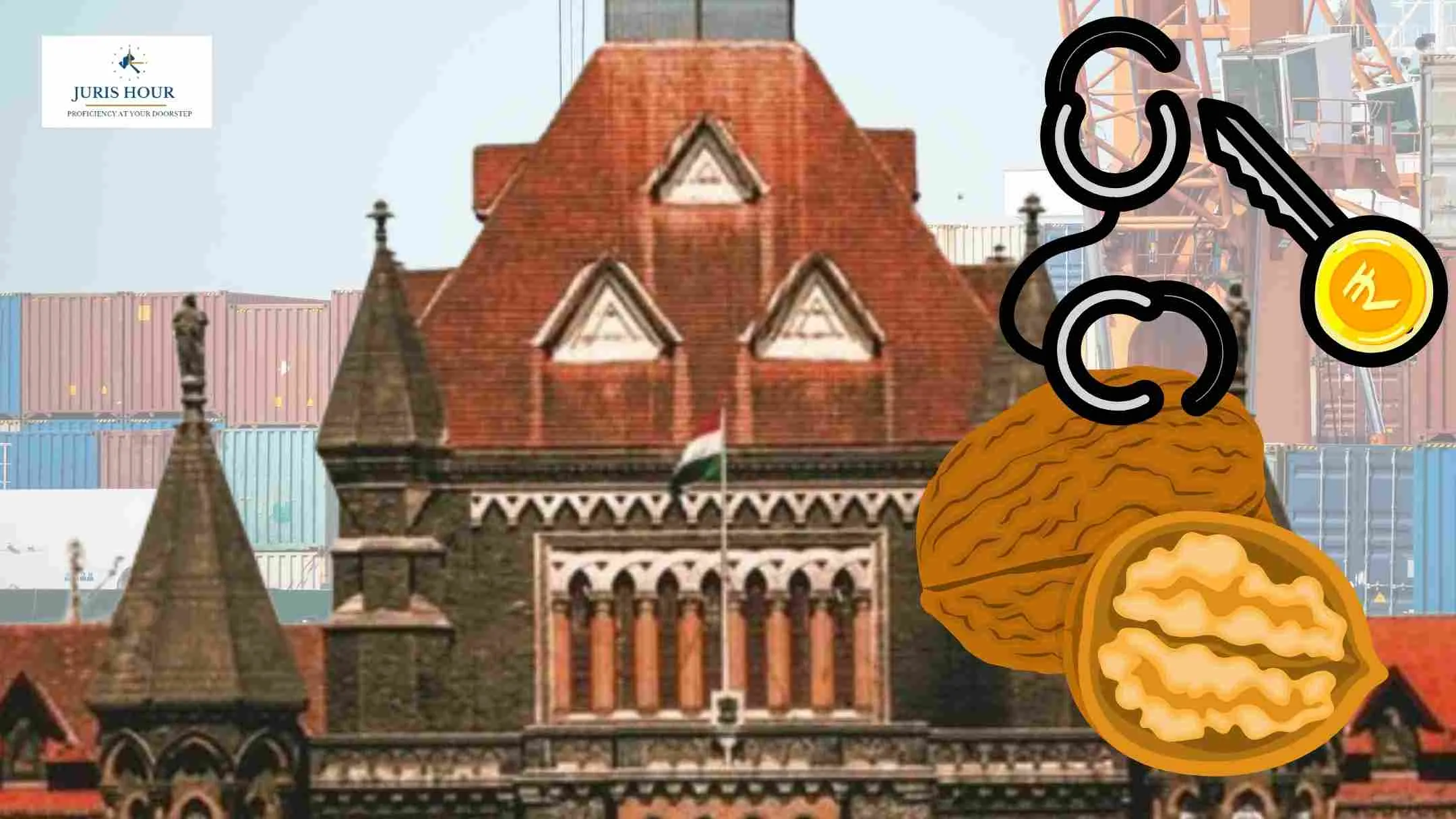The Bombay High Court has granted the anticipatory bail to the Walnuts importer and allowed the videography of statement recording by Directorate of Revenue Intelligence (DRI) and the presence of Advocate at visible distance.
The bench of Justice R.N. Laddha has made crucial observations.
Firstly, the customs declarations in question were primarily made at Nhava-Sheva, located in District Raigad, with some declarations made at Mundra Port in Gujarat. Under such circumstances, the applicants cannot be expected to jeopardise their liberty by engaging in protracted arguments over territorial jurisdiction, specifically, whether the matter falls under the jurisdiction of the Sessions Court at Mumbai (where remand proceedings of co-accused are being conducted) or the Sessions Court at Panvel District-Raigad, where the alleged offence was committed. Given these peculiar and complex jurisdictional facts, the applicants have exercised their right to approach this Court, which has concurrent territorial jurisdiction over both District Raigad and District Mumbai.
Secondly, the applicants’ willingness to comply with compounding provisions, the stage of the investigation, absence of prior criminal record, the documentary nature of the evidence, the willingness on the part of the applicants to jointly deposit a total amount of Rs.5 Crores with the respondent, and the completion of search and seizure operations collectively merits consideration.
Lastly, the primary allegation pertains to the submission of false declarations, and it is undisputed that the case rests predominantly on documentary evidence. The allegedly forged declarations and their supporting documents are already in the possession of the customs department.
Background
The investigation pertains to alleged acts of misdeclaration in the importation of goods, primarily walnuts, which are classified as freely importable items. These imports were mainly routed through the Nhava-Sheva Port.
The DRI accuses the applicants of deliberately undervaluing the imported goods by submitting manipulated and fabricated invoices to evade customs duties. The transactions in question were carried out in the names of several entities.
The primary allegation in the case pertains to large-scale undervaluation in the import of ‘Inshell Walnuts’. It is alleged that the modus operandi involved the submission of manipulated and fabricated invoices issued by Dubai-based entities to Indian Customs authorities, to suppress the true transaction value and thereby evade customs duties. It is further alleged that Sneh Deepakbhai Kakadiya, in his capacity as an authorised representative of the Dubai-based entity, had personally signed the aforementioned manipulated invoices. Additionally, actual invoices issued by a Chile-based supplier were recovered from Sneh Deepakbhai Kakadiya’s email account, clearly indicating a significant discrepancy and deliberate under-invoicing. The estimated customs duty evaded in this manner is said to exceed Rs 44 Crores.
The applicants apprehend arrest and coercive action in connection with allegations involving both compoundable and non-baliable offences punishable under Sections 132 and 135 of the Customs Act, 1962.
The DRI contended that as a general rule, applications for anticipatory bail should first be made before the Court of competent Sessions Court. In the present case, however, the remand applications were filed before the learned Additional Chief Metropolitan Magistrate, Esplanade, Mumbai, even though no specific allegation of mis-declaration has been made in Mumbai. The customs declarations in question were primarily made at Nhava-Sheva, located in District Raigad, with some declarations made at Mundra Port in Gujarat.
Dr. Sujay Kantawala, the counsel for the applicant relied on upon the decisions in Dr (Mrs) Roshan Sam Boyce Vs. BR Cotton Mills Ltd wherein it was held that it is not mandatory for a party to first approach the Sessions Court before seeking relief of anticipatory bail before the High Court.
Dr. Kantawala added that the applicants have filed a joint compounding application dated 1 July 2025 under Section 137(3)of the Customs Act, 1962, as a one-time statutory remedy prior to the initiation of prosecution, with the intention of avoiding multiplicity of proceedings, evading the rigours of prolonged litigation, and safeguarding their liberty.
Conclusion
The court while granting the anticipatory bail stated that in the event of the applicants’ arrest in by and/or at the instance of respondent/ DRI, they shall be released on bail, upon executing a PR Bond of Rs.25,000/- each and furnishing one or more sureties in the like amount.
The court directed that the applicants shall report to the office of the investigating agency as required and cooperate with the investigation. Any statements recorded shall be in the presence of their advocate, who may remain at a visible but not audible distance. The proceedings shall be videographed.
The court directed that the applicants shall, jointly, deposit a total amount of Rs.5 Crores with the respondent within one week. The applicants shall not, either directly or through any other person, tamper with the evidence or attempt to influence any witnesses.
Case Details
Case Title: Dipakkumar Dharamsinhbhai Kakadiya Versus Directorate of Revenue Intelligence
Case No.: Anticipatory Bail Application No.1808 of 2025
Date: 31 July 2025
Counsel For Applicant: Dr Sujay Kantawala a/w Mr Sujit Sahoo, Mr Prateek Singh, Ms Ira Misra, Mr Mahadeo Londhe and Ms Aishwarya Kantawala
Counsel For Respondent: Jitendra B Mishra a/w Mr Umesh Gupta, Mr Rupesh Dubey, Ms Sangeeta Yadav
Read More: 2008 Malegaon Blast Verdict: All 7 Accused Acquitted as Court Flags “No Credible Evidence”

